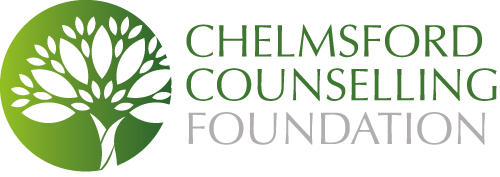Counselling Q&A
What type of issues can counselling help with?
People come to counselling for many different reasons including anxiety, depression, relationship problems, anger, abuse, grief and bereavement, life-stage crises, low self-steem, lack of confidence etc. Perhaps you don’t know where you are going with your life or that you seem to have lost your way. Whatever you are struggling with, talking to a trained counsellor can often help.
What type of counselling do you offer?
Our approach to counselling is what is known as ‘psychodynamic’. This is a traditional ‘talking therapy’ that simply means that we look at your past experiences and relationships, sometimes but not always from childhood, in order to understand what has shaped you in becoming the person that you are today. Through understanding the influence of ‘the past in the present’ and increasing your self-awareness we can offer powerful insights that can help you to change.
What is relationship counselling?
Relationship counselling aims to help people to look at how they relate to each other, to think about how past experiences may be influencing current difficulties and to look at the wider impact of factors outside the relationship. Difficulties with communication, intimacy, jealousy, raising children, life changes, illness and bereavement can all bring additional stress to relationships, and sometimes it can feel impossible for a couple to resolve these without help. Relationship counselling allows space for the exploration of thoughts and feelings and offers the opportunity for those involved to improve communication and understand each other better.
Are your counsellors professionally regulated?
All counsellors at CCF are are members of the British Association for Counselling and Psychotherapy (BACP). Our qualified counsellors are all registered with BACP and many have been awarded the higher level individual BACP accreditation. All counsellors at CCF work to the British Association for Counselling and Psychotherapy Ethical Framework for the Counselling Professions, regarding professional standards and other matters of ethics and good practice. Copies of the Ethical Framework can be downloaded here:
BACP Ethical Framework for the Counselling Professions
CCF is also a training centre for counsellors. Will I see a trainee?
Our team includes some counsellors who are in the advanced stages of their training. If your counsellor is still in training they will inform you of this at the first session, however, you can be reassured that all trainees that see our clients have completed over two years of intensive training prior to seeing clients and have been assessed and carefully selected for clinical training by a team of in-house and external professionals.
We take care to ensure that clients are seen by the most appropriate person, so your intake assessment will be carried out by an experienced, qualified counsellor. All counsellors are committed to continued in-service training and regular clinical supervision.
Is counselling confidential?
Yes, whatever you tell your counsellor remains confidential between you. There are specific and very rare occasions when we would be legally compelled to inform somebody else; for example, if what you had told your counsellor led us to believe that you or somebody else was at risk of serious harm or where the safeguarding and wellbeing of a child or vulnerable adult was at risk.
Does (psychodynamic) counselling work?
Research (Shedler, 2010, Tavistock Adult Depression Study, 2016) has shown that psychodynamic counselling often leads to more definite and longer lasting change with a lower likelihood of relapse. It is for this reason that psychodynamic counselling is often recommended as an effective treatment for a range of emotional and psychological problems.
How long will it take me to see improvement?
Do I need to tell anyone that I am seeing a counsellor?
No, however, in order to work together we will need your GP details, just in case we have any concerns about you that your counsellor feels your GP should know, or if we think your GP could provide valuable help to you. In either case, we would not contact your GP without speaking to you first.
Any notes taken by your counsellor do not form part of your official NHS medical record.
